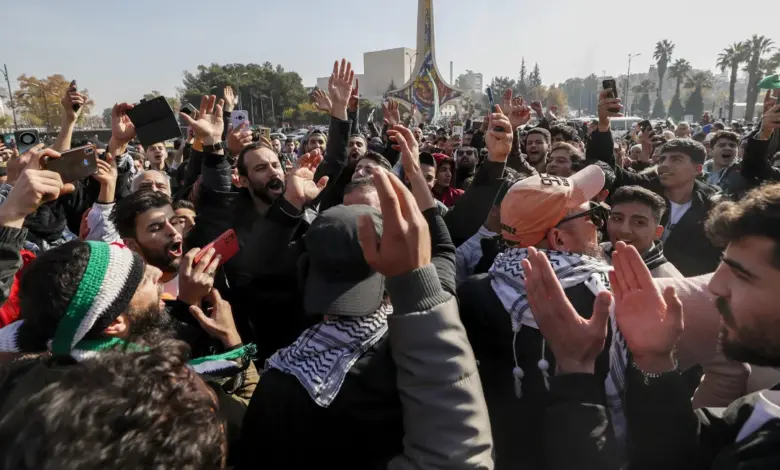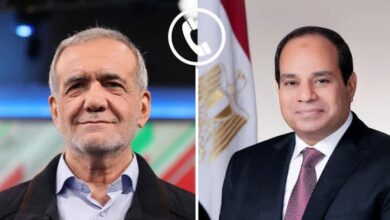
The joy of the Syrian people following the toppling of the Bashar al-Assad regime, felt across the region from the Druze-majority Sweida to Aleppo, Damascus, Hama, and Homs with their Sunni majority and Christian presence, has been expressed through the raising the flag of the Syrian revolution, a great and honest flag deserving of support and praise.
As long as the flag of doom and destruction – ISIS – does not appear, this means that the country has taken the first step on the right path, without denying the dangers ahead.
One of Syria’s most pressing challenges is rebuilding state institutions while giving armed factions a significant role or even a governing one.
Will these factions be integrated into new security and military institutions, as the military operations management has announced, without falling into the trap of quotas? And will these institutions be built on a professional and neutral basis, far from political inclinations and sectarian affiliations?
The ease with which the regime fell does not mean that building a replacement will be easy.
In Syria, the regime’s popular base was almost nonexistent compared to Libya and Iraq, where Saddam Hussein and Gaddafi enjoyed some popular support, albeit limited. In contrast, Bashar al-Assad’s regime relied on Russia, Iran, Hezbollah, and militias from Iraq, Pakistan, and Afghanistan for its survival, a situation that is rare in the Arab and global contexts – making Syrians feel that their country was under occupation.
The Syrian consensus against the regime will not be the same when the country begins building something new.
The question thus will be: “Can Syria avoid the mistakes of previous Arab change experiences, especially those that used the armed option like Libya, particularly regarding the treatment of the old regime and institutions?”
In Syria, the slogan “uprooting the Baath Party” that accompanied the establishment of the new regime in Iraq after the 2003 US invasion was absent.
In a striking paradox, the Baath Party in Syria declared its support for the revolution.
We witnessed a meeting between the leader of Hayat Tahrir al-Sham and the former Prime Minister of the regime to coordinate the management of the transitional phase – some we have not seen in any peaceful or armed Arab regime changes, wherein the slogan of “eliminating remnants” and uprooting the old regime was one of the goals of the forces of change, who were more exhausted by the battles of the past than in the battles for the future.
It is true that the military operations management has announced the trial of only those officers who committed crimes of killing and torture against the Syrian people, a necessary step. However, at the same time, it announced the exemption of all conscripts, and the term “restructuring the army” was used, not “dissolving” as happened in Iraq, which had catastrophic consequences.
Everything so far indicates that Syria has understood the reasons behind previous Arab revolutions in terms of dealing with the old regime.
However, it will still face challenges in building and agreeing upon the new order in the presence of armed factions and Israel’s ambitions that have exceeded all limits.
About the author:
Amr al-Shobaky is an Egyptian writer, political analyst and managing-editor of Ahwal Masria magazine. He holds a Bachelor’s degree in Political Science from Cairo University (1983), a Master’s degree in Political Science from the Institute of Political Studies in France. (1993), and a PhD in Political Science from the Sorbonne University in France (2002).




